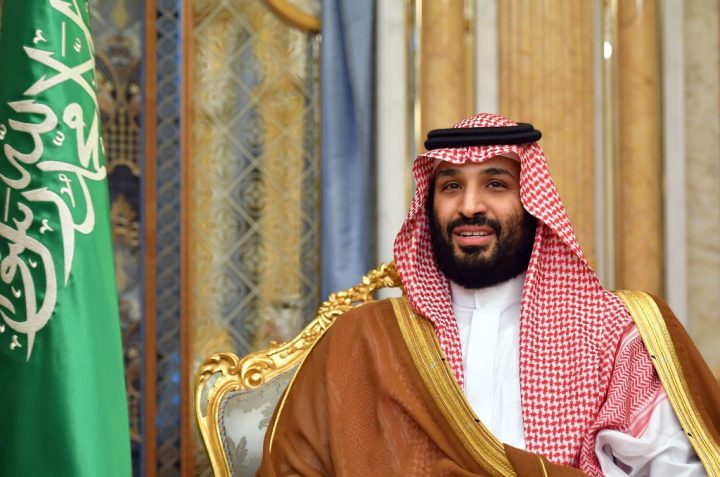The war in Gaza presents a major challenge for Saudi Arabia. The Saudi leadership is trying to placate two different camps: its own population along with the publics of the Arab and Muslim worlds as well as the US administration and influential westerners. The former are horrified by the killings of Palestinians in Gaza whereas the latter want some acknowledgment of Israel’s right to self-defence. This effort to keep everyone happy was on full display over the past weekend at the joint summit of the Arab League and the Organization of Islamic Cooperation that was held in Riyadh.
At the event, Saudi Arabia’s Crown Prince Muhammad bin Salman (MBS) gave opening remarks that unequivocally condemned Israel’s war on Gaza. But he also denounced the targeting of all civilians and called for the release of all hostages and prisoners – Israelis as well as Palestinians.
Saudi Arabia’s normalisation effort was as much a target of Hamas’s attacks as was the defeat of Israel’s military prowess
MBS argued for the urgency to give the Palestinians their right to self-determination and statehood in the West Bank, Gaza and East Jerusalem, based on the borders on 1967. For him, the only ‘strategic option’ is peace through the two-state solution as proposed in the 2002 Arab Peace Initiative. Only then can regional order and stability be secured – something which is vital to Saudi Arabia’s own domestic economic diversification.
Until the attacks of October, the Saudis were engaged in efforts across the region, from Yemen to Sudan to Iran, to bring an end to ongoing regional conflicts. Peace was deemed necessary to enable Saudi Arabia to proceed with its own economic domestic development plans.
The summit’s final communique reflected MBS’s views and added a call for stopping all arms sales to Israel. This was the only concession made to the more hardline participants in the summit such as Iran.
Unlike the oil boycott on 1973, the Saudis and the UAE rejected Iran’s call to use oil as a weapon through an embargo on Israel and its allies. The Saudis have internalised the lessons of 1973, namely that using oil as a political weapon results in negative consequences such as demand destruction and loss of market power. Riyadh also refused to ban Israeli civilian airlines flying over their territory, while countries such as the UAE, Bahrain, Jordan, Egypt and Morocco declined to sever diplomatic relations with the Jewish state.
Those who had hoped that the Arabs and Muslim states would exert substantial pressure to enforce an end to the war – or at the least a ceasefire – were disappointed. Effective power against Israel and the US was not to be wielded among this disparate congregation.
Until 7 October, Saudi Arabia had been pursuing negotiations with the United States that would have eventually led to the normalisation of relations with Israel. These involved the Saudis obtaining a set of promises from the US, including a security treaty whereby America would guarantee to defend the kingdom against external aggression, a civilian nuclear program, a free trade agreement and an easier process for purchasing American weapons.
As part of the deal, Israel would offer a two-year freeze on Jewish settlements in the West Bank. In return, the Saudis would make peace with Israel, downgrade their strategic relationship with China and promise to keep oil priced in dollars. While MBS told Fox News on 20 September that ‘every day [the Kingdom and Israel] get closer’, the final terms had not yet been agreed upon by the time of the horrific acts in October. Like many, Saudi Arabia was taken by complete surprise by Hamas’s attack, and by the group’s initial battlefield success.
Hamas succeeded in underscoring that Palestinian rights remain central to Arab and Muslim politics and that no peace with Israel can be pursued if these are ignored. In other words, Saudi Arabia’s normalisation effort was as much a target of their attacks as was the defeat of Israel’s vaunted military prowess.
Saudi Arabia has been vexed by the ability of an Islamist organisation such as Hamas, with the backing of its arch rival Iran, to sow chaos in the region and to possibly to ignite a region-wide war. While the loss of civilian Palestinian lives is deeply discomfiting for Riyadh, it understands that Hamas and Iran are agents of instability and must be contained. This is why Riyadh has reverted to insisting that only negotiations leading to a two-state solution will prevent such actors from doing the same again, and again.
After the war in Gaza is over, the Saudis will insist that Israel negotiate peace with the Palestinians with the aim of establishing a viable state. Whether the Israelis do this, especially after the trauma that they have endured, is very much an open question.
The US will be a key player in this regard. That is because only Washington can exert pressure and persuade Israel that the path of no peace, which the Israeli prime minister Benjamin Netanyahu has pursued until now, will never deliver security.
The Saudis can also be helpful in several ways on the Palestinian front. They can, of course, help Palestinians financially by rebuilding Gaza and improving conditions in the West Bank. But, more important, the Saudis can help with identifying a new, younger and more accountable leadership for the Palestinian Liberation Organisation and thus for the Palestinian Authority.
Riyadh, along with other Arab states, can also play a role in stabilising and securing Palestinian society until such time as it can establish a viable state of its own. At this moment, the Saudi leadership is contemplating all the possibilities the kingdom can pursue to help Palestinians.
This is why it is important for Western countries to be coordinating with Riyadh on how best to serve the cause of peace in the region. Only then will the Saudis resume the normalisation negotiations that were abruptly interrupted by this terrible war in Gaza.






Comments